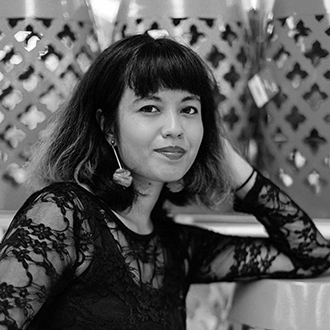The Crypt Seed
The seed is a wound in the form of a little girl buried alive. Buried inside me the sol de la terre. What do I remember of last night’s dream, that the children were painting a mural that spread beyond the surface of the wall. There was a blue spirit a benevolent ghost with no eyes that hung over the children like a cloud reaching out its arms. Did the image fatigue me? I was fatigued by everything. There were space chairs facing the walls and I kept falling asleep.
Cry at my library carrel. Cry when I step off the bus. A crystal-clear sky over midtown and I no longer have the energy (will?) to masticate subjective experience. Wrote nothing about the breakup. It’s as though nothing actually happens to me.
I wanted a quiet life—to keep the casket. They don’t even notice I’m half-here, while the other half lives in the crypt. Go down to the grotto with your headlamp and crowbar. Release the girl lost and afraid. I’m not here. No one touches her. Reserve a little for myself. To self-witness. But what’s become of my mind there is no world. What did I want to say to him—that there’s a crypt-shaped seed I show to no one: it is my fate. The impossibility of making a day, leaking one’s soul for want of an angel. The night was forever. And pearls of light rained down on me I lost myself in the lonely expedition toward the center of everything I would become: nothing there’s no time but love was a thing hanging in the air at night when I’d stalk the streets with my heart in my mouth.
Bury my heart in the haute mer. Find me not I’ve flushed it to spare myself the humiliation of being seen. She’s nowhere to be found or maybe there’s a casket bobbing on the ocean with a note inside that says, “The secret to survival is to disappear.”
Copyright © 2024 by Jackie Wang. Originally published in Poem-a-Day on September 27, 2024, by the Academy of American Poets.
“How does one leave a trace when writing from the space of nonexistence? Who is the dreamer when the subject is absent? In the “Inferno,” Dante writes, ‘I did not die, and I was not alive.’ There is a liminal space between life and death, where one remains technically alive (yes, the heart still beats) while living as a ghost of oneself, dissociated, devoid of volition, and shorn of one’s memories, [and] one’s capacity for perception. What is it for, this mode of self-erasure? She becomes inviolable through the evacuation of her self.”
—Jackie Wang

